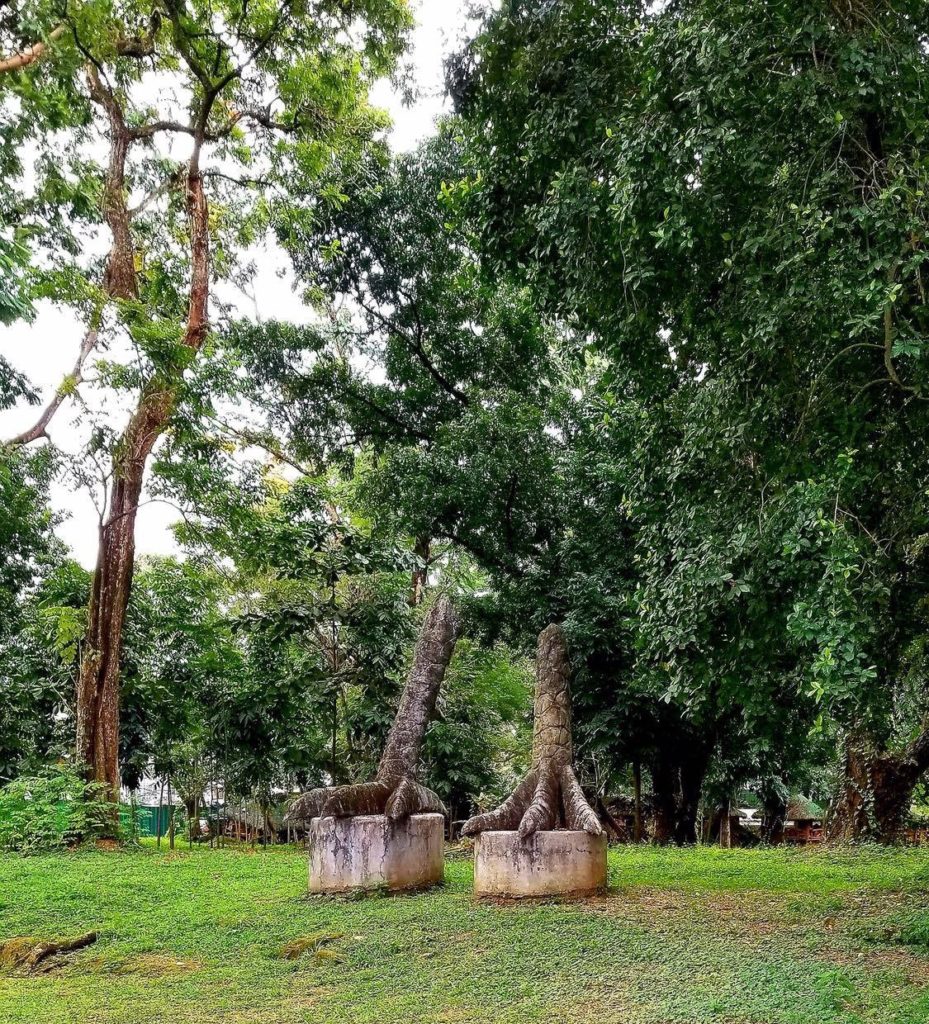
Nature is the pathway we use to learn, create, bond, and develop as individuals. It is that dense yet solid foundation that supports our home. Therefore, we are as healthy and diverse as the environment that encompasses us! Today’s world has adapted modern needs and habits that are highly endorsed by entities for pure lucrative comfort and satisfaction who rarely think about the implications that industrious activities will cause on the cycles and patterns nature follows. This point is further argued by Archbishop Emeritus, Desmond Tutu, who stated that, “people of conscience need to break their ties with corporations financing the injustice of climate change.” People living in different geographical locations are all facing a major problem that threatens the core of their “natural neighborhood.” Nothing should make us become deterrent when forming concrete strategies in explicating the drastic reduction of climate change. It will take a consistent effort to see a positive outcome in our world, we just have to keep at it. The best way for us to fully understand the gravity of this dire situation? One must see the challenges others have faced and continue to endure so that a better future will be made.
-Nichali Bogues, Kingston, Jamaica
Philippines
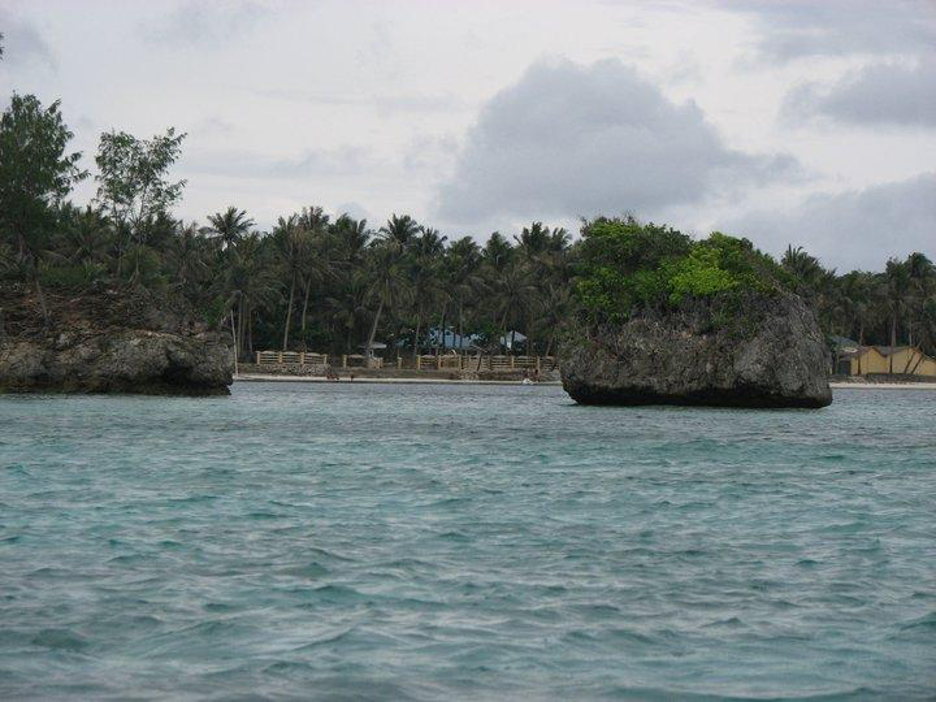
The Philippines is a Southeast Asian country that is vulnerable to climate change effects, which makes it difficult for me to travel to and visit my relatives. When I lived in the Philippines, I developed asthma as a child due to the heavy carbon monoxide emissions from vehicles.
According to the Global Climate Risk Index 2020, the Philippines has one of the highest Climate Risk Index (CRI) in the world; this index refers to the level of vulnerability to weather-related events. Annually, the Philippines encounters an average of 20 typhoons in addition to other natural disasters such as earthquakes and floods that can all be exacerbated by climate change. Since most of my relatives and friends are still living in the Philippines, I am most worried about their overall health because climate change worsens air quality, which makes the population susceptible to developing cardiovascular diseases.
-Airam Viennelu Aliwalas, University of North Florida, FL, USA
Corvallis, Oregon, USA
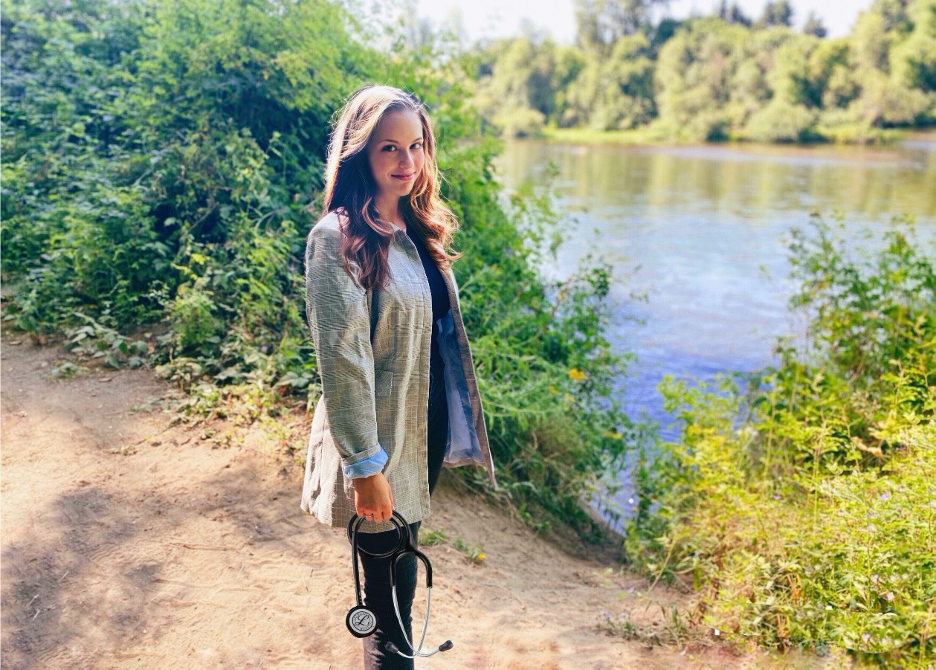
As a native and lifelong Oregonian, I have seen the implications climate change has had on the Pacific wonderland. Since the first half of the 20th century, the Pacific Northwest has already seen a warming of a conservative 1.5 °F estimate; climate models project this number to rise 5-8.5 °F by the end of the century.
In many ways, climate change is regarded as the “threat multiplier” – and multiplied it has. This is because climate does not solely affect isolated issues, but compounds cascading elements; it becomes a determinant. Community health, economy, agriculture, various industries – nothing is left untouched, even if seemingly unrelated.
Through the lens of a future physician, climate change is an alarming disruptor in healthcare. I have witnessed this first hand as a caregiver during the wildfire season in Oregon, where high temperature and smoke aggravates and worsens health conditions, overwhelming the hospital system. On September 5th of 2017, the emergency department and urgent care observed 20% more visits statewide than expected due to respiratory issues following a wildfire.
Because I care about the health of Oregon’s people, I must also care about the health of Oregon’s environment.
–McKenzie Hughes, Corvallis, OR, USA
Ontario, Canada
Climate change has recently begun having a larger impact on society as a whole. According to the Climate Reality Project, one of the results has been increased rainfall. As the world warms, the rate of the evaporation of the ocean increases, which contributes to more extreme precipitation. Likewise, as the atmosphere gets warmer, it can hold more moisture which is a factor in increased downpour intensity. This can have quite detrimental effects.
A few years ago, my family took a vacation to India to visit our relatives. Having not seen them for a couple of years, we were really enjoying our time. Vacation is an escape from reality. But that didn’t last long because one day, my mom checked the news back at home and our great vacation took a turn in the opposite direction.
It had been announced that there was very heavy rain for a couple of days and basements were flooding. We asked our friend to check on our basement, and just as we had feared, our basement was submerged under 2 feet of water.
When we got home, everything was destroyed – carpet, books, electronics. It was a costly and tiresome experience that is all too common nowadays. I fear that from here, unless we make more of an effort to slow climate change, only more and more unfortunate things like this will happen to more people.
-Joshua Mathews, University of Windsor, Ontario, Canada
Houston, Texas, USA
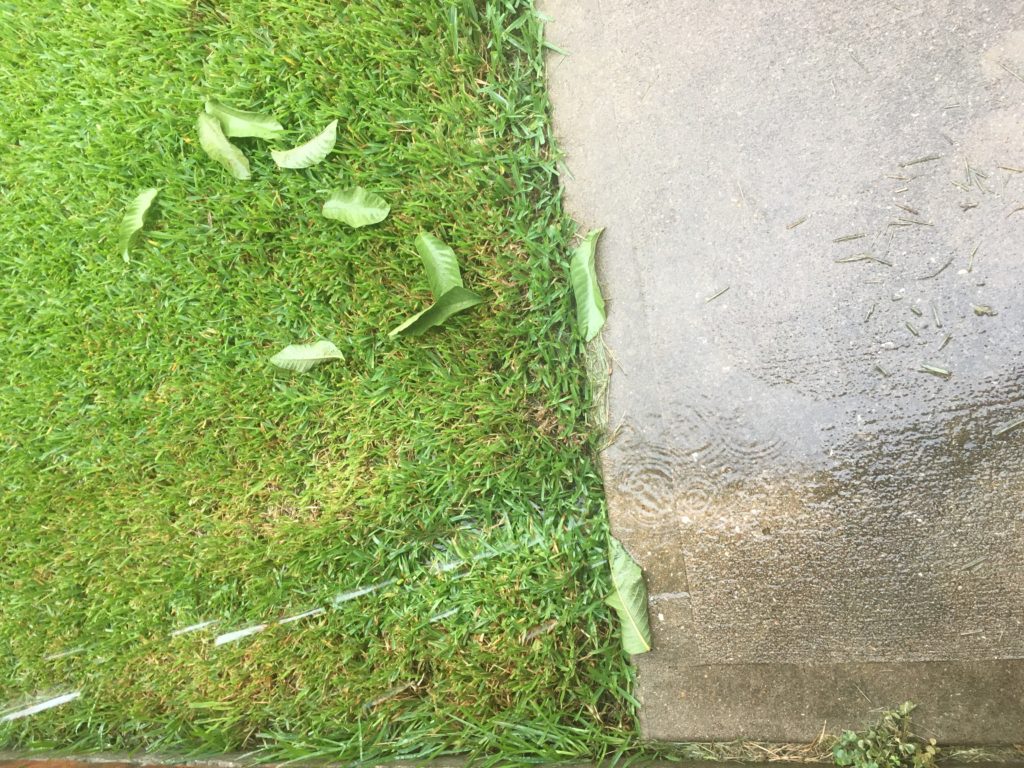
The silver lining is that the city government recognizes the need for change and has created an ambitious climate action plan that aligns with the Paris Climate Agreement: to decrease greenhouse gas emissions in order to prevent the Earth’s temperature from rising 1.5 degrees Celsius and to become carbon neutral by 2050. According to the City of Houston, 45% of the city’s greenhouse gases come from transportation, so finding ways, such as walking short distances or taking the Metro instead of our cars, would be helpful in decreasing emissions.
I hope that by working together as communities and a city, we can reduce greenhouse emissions, prevent excessively destructive hurricanes from forming and protect our city for generations to come.
The photo I have shared shows rain falling and creating puddles in my backyard. I am thankful for the rain that comes with living in a coastal city, but with temperatures and sea levels on the rise due to greenhouse gas emissions, gentle showers can take a more destructive form, which is why it is so important for us to act on climate change now.
–Pragya Mishra, Emory University, Atlanta, GA, USA
Addis Ababa, Ethiopia
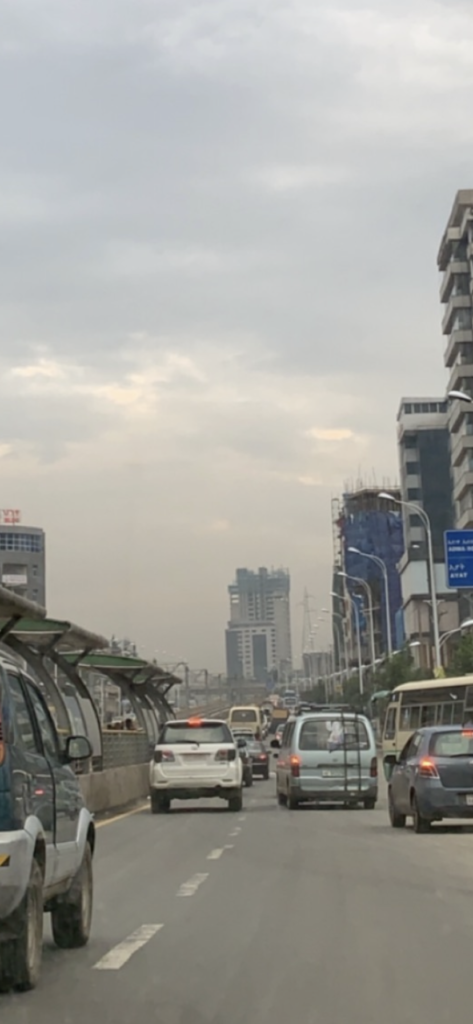
In my home town of Addis Ababa, Ethiopia, mortality due to water-borne diseases, heat waves, and respiratory diseases, caused by air pollution, is on the rise. In a country where there are little resources for mitigation, these effects of climate change are extremely alarming. When I visited Ethiopia in the summer of 2019, I was shocked to see how dark and grey the sky was. The streets were filled with large and old vehicles that contributed greatly to the emissions causing the dark grey skies. There was not a day where I saw a clear sky in the city. When I was living there, I did not realize how horrible the smog was, as that was considered the norm. However, now having lived 7 years in the suburbs of Texas, I had something to compare Addis Ababa to, which opened my eyes to the dangerous path my country is heading down on. It makes it more heartbreaking knowing that access to healthcare is considered a privilege in Ethiopia, contributing to even more lives lost as a result of climate change.
-Hermella Merso, University of Texas at Dallas, Texas, USA
Each individual and major enterprise has a responsibility to be more efficient in the ways they use products that are not beneficial to the environment. It is evident that over time we will face more floods, air pollution, droughts, extreme heating, and other horrible consequences if we do not step up and do what is right. Some of the ways to make our environment less intensely concentrated are: invest in energy-efficient appliances, reduce water waste, and manage our carbon profile in a better manner. Also, another key role to play is to become an advocate for climate change, simply speak up. Now is the time that we must come together as a united force with one prime objective; making the world a better place to live. The by-product of this goal is making it safer to raise our families and giving the next generation a better place to grow and interact with. As stated by David Suzuki, “ in a world of more than seven billion people, each of us is a drop in the bucket. But with enough drops, we can fill any buckets.”
-Nichali Bogues, Kingston, Jamaica

